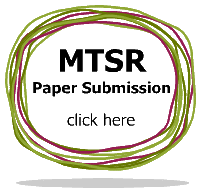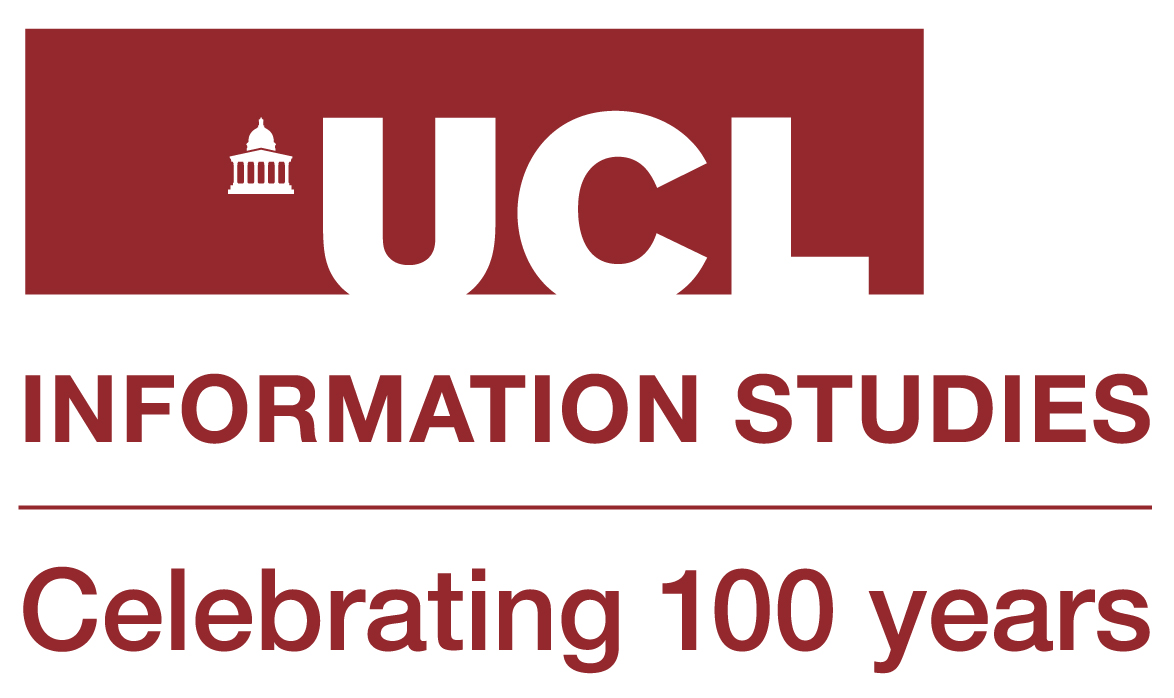Proceedings will be published by
Previous MTSR proceedings on SpringerLink: link.springer.com/conference/mtsr
Selected papers will be published by
Special Track on Metadata & Semantics for Digital Libraries, Information Retrieval, Big, Linked, Social & Open Data
 Call for Papers – Deadline Extension
Call for Papers – Deadline Extension
Important Dates
- 12th September, 2022: New submission deadline for Full and Short papers 28th August, 2022
- 12th September, 2022: New submission deadline for Posters, Workshops, Tutorials, Demos and Panels 28th August, 2022
- 30th September, 2022: Notification of decision
- 16th October, 2022: Camera-ready papers due
7th - 11th November 2022 Conference at the University College London
The MTSR2022 Conference will accommodate a dedicated session for online presentation
Aim and Scope
The aim of the Special Track on Digital Libraries, Information Retrieval, Big, Linked, Social and Open Data of the 16th MTSR 2022 Conference is to bring together researchers from the broad areas of digital libraries, data repositories, institutional repositories, information retrieval, linked data and online social networking who are interested in communicating and sharing novel research approaches to the implementation of metadata, ontologies and semantics in this context.
Modern approaches to metadata, ontologies and semantics have revolutionized the design and implementation of Digital Libraries, data repositories and Information Retrieval Systems, while they have made possible the management, analysis and querying of big volumes of heterogeneous data, both structured (linked data) and unstructured (e.g. social data, open data, or social networking interactions). Despite the benefits of these technologies for end users, like improved interaction with information, or better search, interpretation and sharing of data; yet there are many metadata and semantic challenges that need to be overcome in order to improve the user experience. These challenges are multi-dimensional in nature and could span from system architecture and data modeling to user interface design and evaluation, including: the implementation of linked data models in Digital Libraries, the design and evaluation of information retrieval algorithms across heterogeneous collections of structured and unstructured data; the integration, mapping and interoperability of heterogeneous linked data models and ontologies; analysis of social data for the discovery of trends and future predictions; or social network analysis.
Topics
Topics include but are not limited to contributions dealing with the following issues:
- Ontologies and knowledge representation
- Metadata standards, schemas and application profiles
- Metadata and Linked data models
- Metadata and semantic interoperability
- Metadata and Ontology management
- Linked data, data management and linking of heterogeneous datasets
- Social Data management and analysis
- Social Networking and Collaboration platforms
- Metadata and Semantics for Social Machines
- Metadata, semantics and ontologies for storage and retrieval of information (e.g. digital libraries, data repositories, institutional repositories, search engines, social information seeking, data-mining and information retrieval systems)
- Metadata, semantics and ontologies for digital object curation, provenance and content preservation
- Metadata Provenance
- Metadata and semantics for different information seeking life-cycles (e,g, searching, evaluating, using and sharing information)
- Metrics and Quality issues for metadata and semantics (methods, measures)
- Evaluation methodologies for metadata, semantics, ontologies and linked data
- Human Computer Interaction and User Research in metadata and ontology design and development.
- Comparative studies (auto generated versus human generated metadata and semantics)
- Accessibility, profiling and content personalisation
- Semantics in the design of Digital Library architectures and infrastructures
- Knowledge representation and information visualisation
- Decision support for Digital Libraries and Information Retrieval Systems
- Collaborative filtering & recommender systems
- Big social data
- Big data best practices
- Date repositories
- Institutional repositories
- Research Data Management
Submission procedure
The following types of submissions are invited:
- Full papers (12 pages, CCIS format) reporting completed research
- Short papers (6 pages, CCIS format) presenting ongoing or preliminary research
- Presentations and Posters (3-4 pages)
- Proposals for Tutorials, Workshops. Demos and Panels (1-3 pages providing a description)
Submissions should be original and not previously submitted, published and under review to other Conferences or Journals. All submissions will be reviewed on the basis of relevance, originality, importance and clarity following a double-blind peer review process. Submitted papers have to follow the LNCS proceedings formatting style and guidelines. Authors of accepted submissions will be asked to register to the Conference and present their work in the form of either oral presentation or poster presentation.
Interested authors can submit to EasyChair.
Conference Proceedings
Proceedings will be published by Springer in CCIS (Communications in Computer and Information Science) book series (https://www.springer.com/series/7899). CCIS is abstracted/indexed in Scopus, SCImago, EI-Compendex, Mathematical Reviews, DBLP, Google Scholar. CCIS volumes are also submitted for the inclusion in ISI Proceedings.
Other Publication Opportunities
Selected papers might be considered for a revised and extended version to be published in a range of international journals, including the International Journal of Metadata, Semantics and Ontologies (Inderscience) and Data Technologies and Applications (Emerald), previously published as Program and The Electronic Library (Emerald).
Awards
There are two types of awards: the Best Paper award and the Best Student Paper award, both sponsored by euroCRIS.
- Best Paper award: This award will be presented to the authors of the best full research paper submitted and presented to the conference.
- Best Student Paper award: MTSR sponsors a paper competition to recognize excellence in a conference paper contribution whose primary author is a student (normally at a PhD or MRes level). The student is required to present the paper at the MTSR 2022 conference. Submissions are evaluated on their originality, scientific merits, structure, and clarity of composition.
The author of an awarded paper, and co-authors if any, will be entitled to:
- Receive a signed and stamped official award certificate by the conference organizers
- Promote their achievement on MTSR conference webpage, and MTSR Social Media
- Get invited to submit an extended and revised version of the awarded paper for publication in the International Journal of Metadata, Semantics and Ontologies (Inderscience);
- Each award comes with the price of a free access/registration to next year’s MTSR. Including all conference materials, together with the printed/digital conference proceedings.
- This voucher, in case of many co-authors, is valid only for one author of the awarded paper, and only for the MTSR conference that follows the year after receiving the award.
Special Track Chairs
Emmanouel Garoufallou, International Hellenic University, Greece
Jane Greenberg, Drexel University, USA
Rania Siatri, International Hellenic University, Greece
Program Committee (TBC)
- Panos Balatsoukas, King’s College London, UK
- Özgü Can, Ege University, Turkey
- Sissi Closs, Karlsruhe University of Applied Sciences, Germany
- Mike Conway, University of North Carolina at Chapel Hill, USA
- Phil Couch, University of Manchester, UK
- Milena Dobreva, Sofia University St Kliment Ohridski, Bulgaria
- Ali Emrouznejad, Aston University, UK
- Panorea Gaitanou, Hellenic National Defence College, Greece
- Jane Greenberg, Drexel University, USA
- Richard. J. Hartley, Manchester Metropolitan University, UK
- Nikos Korfiatis, University of East Anglia, UK
- Rebecca Koskela, Research Data Alliance, USA
- Dimitris Rousidis, International Hellenic University, Greece
- Athena Salaba, Kent State University, USA
- Miguel-Ángel Sicilia, University of Alcalá, Spain
- Christine Urquhart, Aberystwyth University, UK
- Evgenia Vassilakaki, EIOPA, Germany
- Sirje Virkus, Tallinn University, Estonia
- Georgia Zafeiriou, University of Macedonia, Greece
- Marios Zervas, Cyprus University of Technology, Cyprus
Contact
mtsr.conference@gmail.com
















